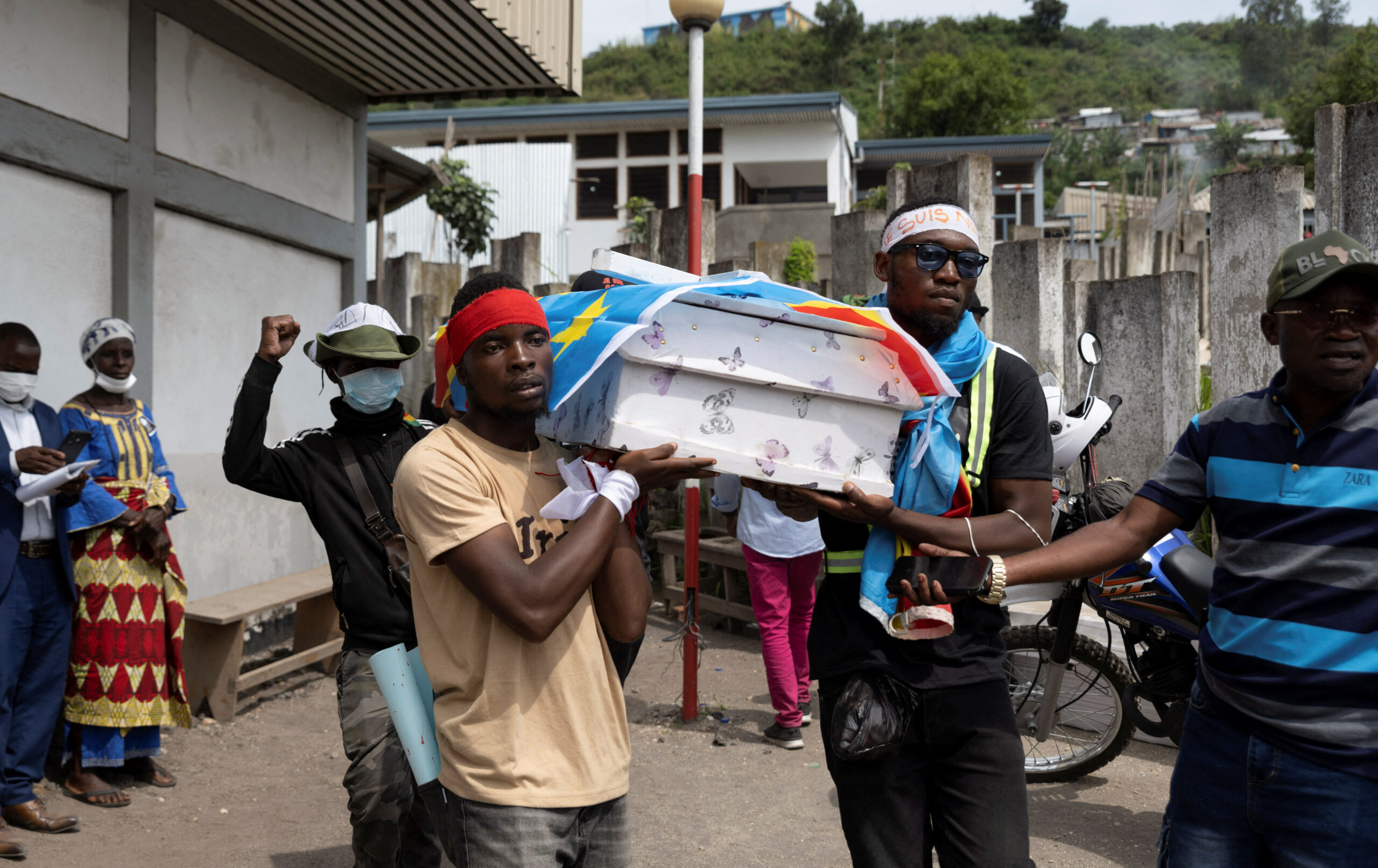
Many people in Congo accuse militants backed by Rwanda of carrying out the attack
In the eastern Democratic Republic of the Congo, families gathered close to the row of tiny caskets, lamenting the deaths of their children and other victims of a rocket attack. Many of them yelled accusations at the rebels they believed were responsible for the attack.
Family members displayed crosses bearing the names of the deceased and expressed their rage at Rwanda, the neighboring country that they, the U.N., and their government claim is supporting the M23 rebels, a claim that Kigali refutes.
On May 3, at least five missiles struck camps housing displaced people near the city of Goma, primarily killing women and children.
Along with the bodies of 13 additional victims, a total of 22 youngsters were buried on Wednesday, many of them in half-sized or smaller caskets.
At the mass funeral held in a cemetery in Kibati, north of the city, Fikiri Mvano remarked, “My daughter-in-law was murdered in the Mugunga camp.”
“She was the target of bombs that Rwanda dropped to help the M23… Her children are with us now. Three of her nine children perished with her.”
Rwanda has stated that it is being used as a scapegoat, denying any involvement in the incident, and implied that militias with ties to the Congo were engaged. A request for comment on Thursday was not immediately answered by the government spokeswoman for Rwanda.
Tens of thousands of people have been driven to escape their homes in an area that has seen no relief since Rwanda and Uganda invaded over three decades ago by the two-year conflict, which is the longest continuous onslaught by M23 since an uprising in 2012–2013 in which they captured Goma.
The moniker “M23” alludes to the March 23 date of a 2009 agreement that put an end to an earlier uprising in eastern Congo led by Tutsis. The M23 charged that the government was failing to implement its pledge to incorporate Congolese Tutsis completely into the armed forces and government.
A major conduit for logistics and humanitarian aid in the area, Goma is a vast lakeside city home to almost two million people, but in recent months, violence has once more gotten closer to the city.
According to Jules Buturanye, a spokesman for the families of the victims who lost his sister in the rocket strikes, many people now feel trapped there.
“If the enemy reaches us in Goma, we have nowhere to go except to drown in the lake or flee to Rwanda to join the enemy,” he stated.
All Categories
Recent Posts
Tags
+13162306000
zoneyetu@yahoo.com



